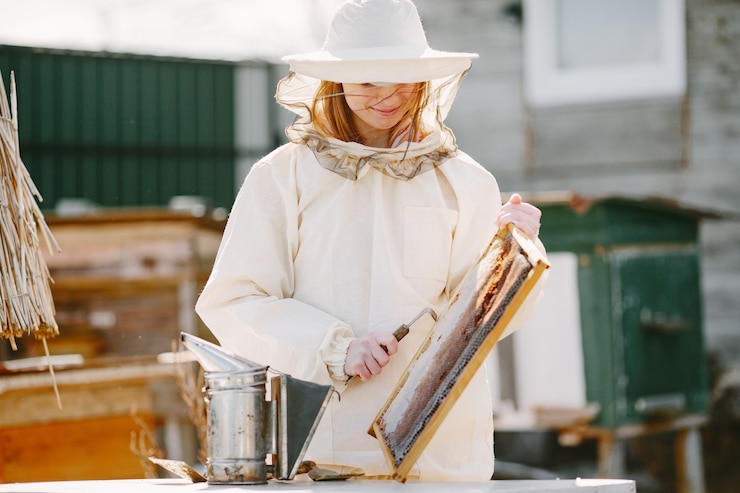Beekeeping, also known as apiculture, has gained popularity in South Africa due to its ecological importance and the demand for honey, beeswax, and other bee-related products. If you’re considering beekeeping in South Africa, it’s crucial to have a solid understanding of the industry. In this article, we will explore ten important things you should know about beekeeping in South Africa.
- Suitable Climate and Floral Resources: South Africa’s diverse climate and abundant flora make it an ideal location for beekeeping. Different regions offer various nectar and pollen sources throughout the year. Research and select a region that provides a favorable climate and diverse floral resources for your bees.
- Honeybee Species: In South Africa, the most common honeybee species used in beekeeping is Apis mellifera. This species is known for its adaptability and honey production. Familiarize yourself with the characteristics, behavior, and management practices specific to Apis mellifera bees.
- Hive Placement and Apiary Site Selection: Choose suitable locations for your apiary. Consider factors such as access to water sources, proximity to floral resources, protection from wind and extreme weather conditions, and availability of suitable forage. Ensure compliance with local regulations regarding hive placement.
- Hive Design and Equipment: Invest in good-quality beehives and equipment. Common hive types used in South Africa include Langstroth, Top-bar, and Warré hives. Essential equipment includes hive bodies, frames, smokers, bee suits, hive tools, and honey extraction equipment.
- Beekeeping Techniques and Colony Management: Acquire knowledge about beekeeping techniques and colony management. Learn how to handle bees, perform hive inspections, manage swarming, monitor colony health, and implement pest and disease control measures. Regular inspections and proper hive management are key to maintaining healthy and productive colonies.
- Bee Health and Disease Management: Stay vigilant about bee health and disease management. Be aware of common diseases and pests affecting bees, such as Varroa mites, American foulbrood, and Nosema. Establish a monitoring and treatment program and work closely with local beekeeping associations and experts to address issues promptly.
- Honey Harvesting and Processing: Timing is crucial when harvesting honey. Learn proper techniques for honey extraction, including the use of bee-friendly methods to minimize stress on the bees. Understand the processing, filtering, and storage requirements to maintain the quality and shelf life of honey.
- Marketing and Selling Bee Products: Research the local and international market for honey and other bee-related products. Understand consumer preferences and identify potential buyers, including wholesalers, retailers, and direct consumers. Consider diversifying your product range with beeswax, pollen, propolis, and value-added products like honey-based cosmetics.
- Legal Considerations: Comply with the legal requirements and regulations for beekeeping in South Africa. Register your apiary, obtain necessary permits, and adhere to quality and labeling standards for honey and bee products. Stay informed about changes in regulations and licensing requirements.
- Continuous Learning and Networking: Beekeeping is a dynamic field that requires ongoing learning and staying updated on the latest research and best practices. Join local beekeeping associations, attend workshops, conferences, and training programs to enhance your knowledge and skills. Networking with experienced beekeepers will provide valuable insights and support.
Beekeeping in South Africa offers exciting opportunities for both commercial and hobbyist beekeepers. By considering the ten aspects mentioned above, you will be better prepared to embark on a successful beekeeping journey. Remember to prioritize the health and well-being of your bees, embrace sustainable practices, and continually educate yourself to thrive in this vital industry that supports both ecosystems and agricultural productivity.
Join 'Farmers Mag' WhatsApp Channel
Get the latest Farming news and tips delivered straight to your WhatsApp
CLICK HERE TO JOIN






